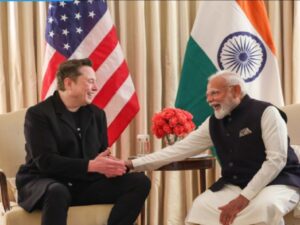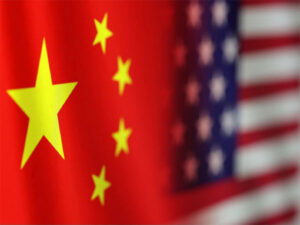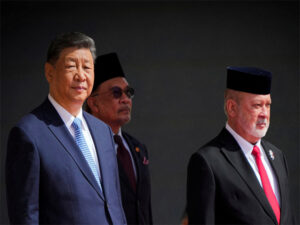China proposes export controls on critical EV technology
Hong Kong, January 4 (ANI): China is planning to impose new export restrictions on technologies used to extract minerals vital for the global electric vehicle (EV) industry, signalling an escalation in its ongoing tech rivalry with the United States, CNN reported.
The proposed measures, if approved, would target technologies related to lithium, gallium, and battery cathode production, crucial components for EV battery and semiconductor manufacturing.
The proposal was announced by China’s Commerce Ministry in a notice calling for public comments. It is seen as a potential expansion of China’s ongoing effort to control materials essential for high-tech production. These moves come after China recently banned the sale of key materials like gallium, germanium, and antimony to the US in retaliation for US semiconductor export restrictions.
Mao Ning, a spokesperson for China’s Foreign Ministry, commented on the proposal, saying, “What we can tell you as a principle is that China implements fair, reasonable and non-discriminatory export control measures.” This new strategy would further solidify China’s power in the global supply chain for EVs, giving it more control over critical resources.
The restrictions on lithium extraction technology could have major consequences as the demand for lithium, used extensively in EV batteries, grows rapidly, reported CNN.
Liz Lee, an associate director at Counterpoint Research, suggested that this move could strengthen China’s position in the battery supply chain, making it more difficult for Western lithium producers to tap into Chinese technology.
“If implemented, a ban or restriction could significantly strengthen China’s dominance in the battery ecosystem,” she explained.
China is already a dominant player in the lithium market, processing over 70 per cent of the global supply. This move would aim to protect its market share and ensure that its own battery supply chains are well-supplied. Adam Webb, head of battery raw materials at Benchmark Mineral Intelligence, stated, “These proposed measures would be a move to maintain this high market share and to secure lithium chemical production for China’s domestic battery supply chains.”
The timing of this proposal, ahead of the Trump administration’s inauguration, is seen as a strategic effort to gain leverage in the trade war. With global demand for EVs and lithium-ion batteries expected to soar, China’s control over these critical materials could become even more impactful. This move also complicates the plans of Chinese companies like BYD and CATL, which are expanding their global reach.
Along with the proposed export controls, China added 28 US companies, including defence contractors like Lockheed Martin and Raytheon, to its export control list. These actions underscore the increasing geopolitical tensions surrounding trade in critical technology and materials, CNN reported.
As China continues to leverage its role in the global supply chain, Western countries may be forced to respond, with the ongoing trade war between the US and China shaping the future of EV technology and global industries.






